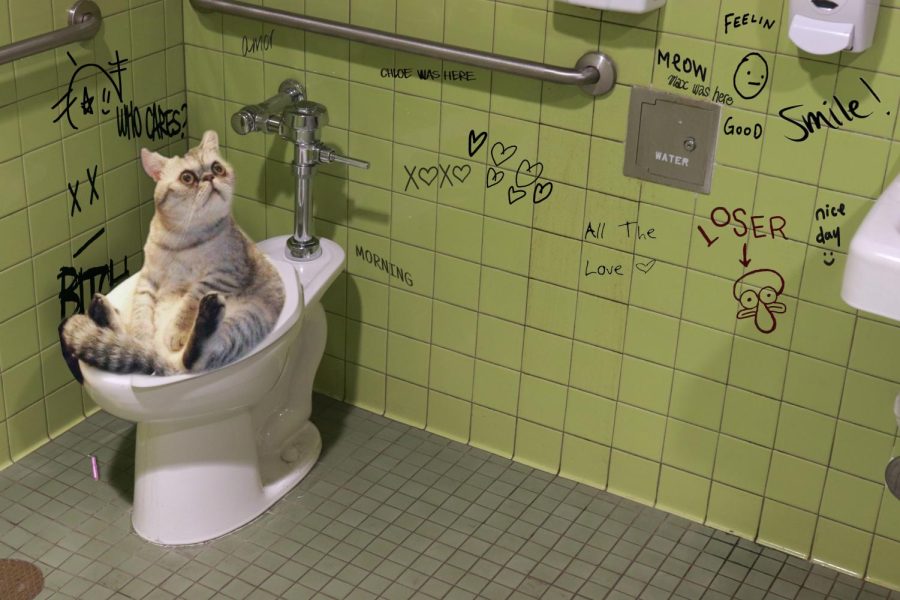Avoid Clogs and Damage: Never Flush Cat Poop Down Your Toilet - Expert Insights
Avoid Clogs and Damage: Never Flush Cat Poop Down Your Toilet - Expert Insights
Blog Article
In this article below you can discover a lot of good information and facts pertaining to Don’t flush cat feces down the toilet.

Intro
As feline owners, it's vital to bear in mind exactly how we take care of our feline friends' waste. While it might appear practical to flush pet cat poop down the commode, this method can have harmful consequences for both the setting and human health and wellness.
Alternatives to Flushing
Thankfully, there are more secure and a lot more responsible methods to get rid of pet cat poop. Think about the following options:
1. Scoop and Dispose in Trash
One of the most common approach of dealing with pet cat poop is to scoop it right into an eco-friendly bag and toss it in the trash. Make certain to use a committed litter scoop and take care of the waste immediately.
2. Usage Biodegradable Litter
Select eco-friendly feline clutter made from materials such as corn or wheat. These trashes are eco-friendly and can be safely disposed of in the trash.
3. Bury in the Yard
If you have a backyard, take into consideration hiding cat waste in an assigned location far from vegetable gardens and water resources. Make sure to dig deep enough to stop contamination of groundwater.
4. Install a Pet Waste Disposal System
Buy an animal waste disposal system specifically designed for pet cat waste. These systems make use of enzymes to break down the waste, reducing odor and environmental effect.
Health and wellness Risks
Along with environmental concerns, flushing pet cat waste can likewise pose wellness threats to people. Cat feces might contain Toxoplasma gondii, a bloodsucker that can create toxoplasmosis-- a potentially extreme disease, particularly for expectant women and individuals with weakened immune systems.
Ecological Impact
Flushing feline poop presents damaging virus and bloodsuckers into the water system, posing a considerable threat to marine ecosystems. These contaminants can negatively impact marine life and compromise water high quality.
Final thought
Liable family pet possession expands past giving food and shelter-- it additionally includes correct waste monitoring. By refraining from purging pet cat poop down the bathroom and going with different disposal techniques, we can decrease our ecological footprint and secure human wellness.
Why You Should Never Flush Cat Poop Down the Toilet
A rose by any other name might smell as sweet, but not all poop is created equal. Toilets, and our sewage systems, are designed for human excrement, not animal waste. It might seem like it couldn’t hurt to toss cat feces into the loo, but it’s not a good idea to flush cat poop in the toilet.
First and foremost, assuming your cat uses a litter box, any waste is going to have litter on it. And even the smallest amount of litter can wreak havoc on plumbing.
Over time, small amounts build up, filling up your septic system. Most litter sold today is clumping; it is made from a type of clay that hardens when it gets wet. Ever tried to scrape old clumps from the bottom of a litter box? You know just how cement-hard it can get!
Now imagine just a small clump of that stuck in your pipes. A simple de-clogger like Drano isn’t going to cut it. And that means it’s going to cost you big time to fix it.
Parasitic Contamination
Believe it or not, your healthy kitty may be harboring a nasty parasite. Only cats excrete Toxoplasma in their feces. Yet it rarely causes serious health issues in the cats that are infected. Most people will be fine too if infected. Only pregnant women and people with compromised immune systems are at risk. (If you’ve ever heard how women who are expecting are excused from litter cleaning duty, Toxoplasma is why.)
But other animals may have a problem if infected with the parasite. And human water treatment systems aren’t designed to handle it. As a result, the systems don’t remove the parasite before discharging wastewater into local waterways. Fish, shellfish, and other marine life — otters in particular — are susceptible to toxoplasma. If exposed, most will end up with brain damage and many will die.
Depending on the species of fish, they may end up on someone’s fish hook and, ultimately on someone’s dinner plate. If that someone has a chronic illness, they’re at risk.
Skip the Toilet Training
We know there are folks out there who like to toilet train their cats. And we give them props, it takes a lot of work. But thanks to the toxoplasma, it’s not a good idea.

I recently found that post on Can You Flush Cat Poo or Litter Down the Toilet? when perusing the search engines. Do you know about another individual who is fascinated by the subject? Please feel free to promote it. Thanks so much for taking the time to read it.
Call Today Report this page